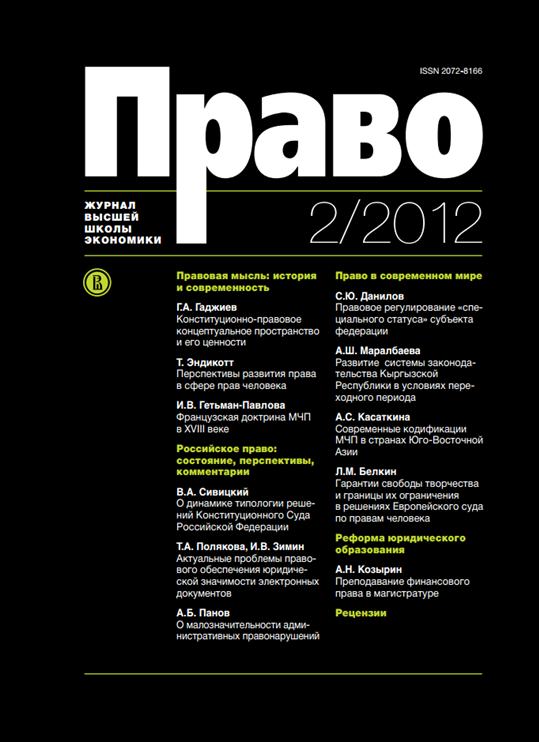Перспективы развития права в сфере прав человека
Аннотация
В центре внимания автора настоящей статьи находится анализ глубоко неоднозначных результатов применения Соединенным Королевством Европейской конвенции о защите прав человека и основных свобод (ЕКПЧ). Эти результаты способствуют напряженности в отношениях между судьями и политиками - деятелями исполнительной и законодательной власти. Помимо прочего, автор рассматривает два особенно болезненные (для британской Фемиды) вопроса - регулирования национальным правом иммиграции в страну и прав заключенных, в том числе их прав на голосование на выборах, на подачу прошения о помиловании и т.д. В статье показано, что при депортации иммигрантов, въехавших в Великобританию нелегально и/или остающихся в ней нелегально, не всегда принимается во внимание отрицательное влияние этого акта на их семейную жизнь. Право на семейную жизнь, присущее праву Европейского союза, является абстрактным и не присущим британскому «общему праву». При толковании этого абстрактного права британские судьи испытывают трудности: им приходится «соизмерять несоизмеримое» - серьезность последствий депортации для семьи нарушителя и государственные интересы, инструментом защиты которых выступает иммиграционное регулирование, принципы которого в Великобритании не выражены публично. Не с меньшими трудностями британским судьям и политикам приходится сталкиваться в правовом регулировании прав заключенных. Абсолютный запрет на избирательные права заключенных находится в противоречии со ст. 8 Конвенции и ст. 3 Первого протокола к ней. К тому же британский парламент принял Акт о правах человека, одно из положений которого обязало судей толковать статутное право страны в соответствии с Конвенцией. А Европейский суд в 2005 г. постановил, что ст. 3 данного Протокола исключает всеобщий запрет на права заключенных. В статье подчеркивается, что британские юристы и политики, которые в 1950-х годах активно участвовали в разработке ЕКПЧ, не предвидели подобного развития событий. Вместо этого британцы долго были убеждены, что Конвенция не окажет большого влияния на их правовую систему и практику. В настоящее время, заключает автор, суды Соединенного королевства совершенствуют свои профессиональные навыки по защите интересов, защищаемых Конвенцией.
Copyright (c) 2012 Право. Журнал Высшей школы экономики

Это произведение доступно по лицензии Creative Commons «Attribution-ShareAlike» («Атрибуция — На тех же условиях») 4.0 Всемирная.


















